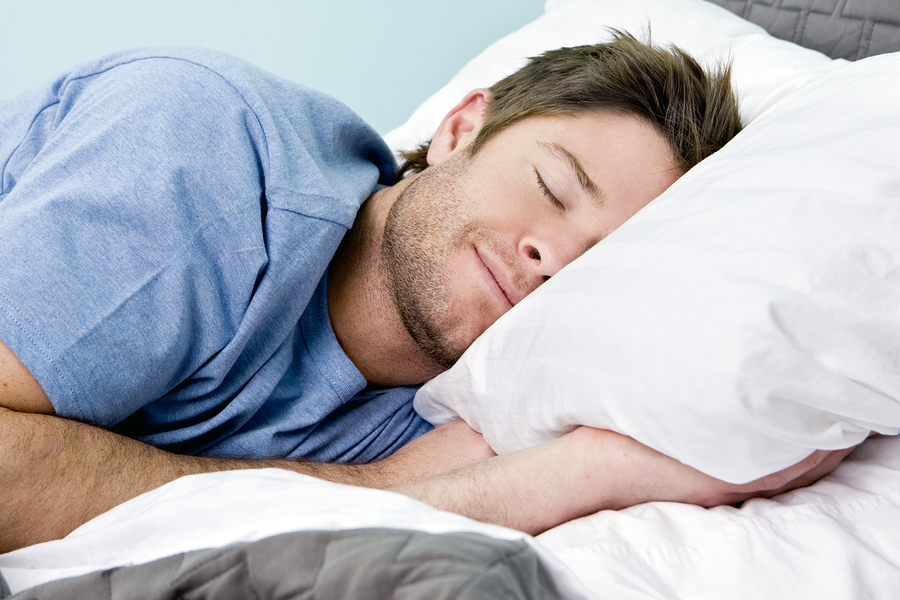Do you find yourself unable to fall asleep at night? Or maybe you fall right to sleep only to end up awake for hours in the middle of the night. Your mind is restless. You are worried about what you have to get done the next day or what you didn’t get done that day. While sleep disorders are a very real and treatable problem, many people can benefit from simple and natural sleep aids.
For millions of Americans, an adequate night’s sleep seems just out of reach, with 40 percent not getting the sleep they need each night. If you are having trouble sleeping, consider trying some of these solutions using natural sleep aids.
Melatonin: Melatonin is a natural hormone made by your body’s pineal gland. You may have seen it in supplement form at your local health food store. Because it sometimes occurs naturally in food, it does not require a prescription. It is also not regulated by the FDA in the same way a prescribed medication would be. Melatonin can be helpful in encouraging sleep, but dosage and timing can be different depending on a person’s particular sleep disorder. Consulting a health care provider is advised.
Magnesium: Magnesium is another substance that occurs naturally in many foods and is also available in supplement form. For this particular remedy, it is important to work with a doctor to determine the appropriate dose. Check with your doctor on appropriate amount as it can interact with medications and too much is not a good thing.
Calcium: Taken as a supplement or directly from food, calcium can induce feelings of sleepiness. It is even more effective when paired with magnesium. Warm milk is probably the most common way to get a calcium boost before hitting the hay. Add a touch of honey or vanilla extract and it will feel like an extra serving of dessert. Almond milk is an excellent source of calcium and can be used in place of dairy milk if you prefer.
Wild Lettuce: In supplement form, wild lettuce seed can aid in reducing anxiety and calming restlessness. It is also often used to help with joint pain and headaches. Consider taking 30-120 milligrams before bed to get a more restful night of sleep.
Aromatherapy: Lavender is known to induce feelings of relaxation and in turn allow for a better night’s sleep. For many people the stresses of daily life can make it difficult to fall asleep. As an essential oil, lavender oil can be used in a diffuser, room spray or even a body lotion or bath salt. A few drops can even be added to the dryer when drying your bedding. Also known to have anti-inflammatory, antifungal and anti-depressant qualities, it is an all around good go to for a natural but effective way to get better sleep.
Valerian: A medicinal herb that can be sedating, Valerian can take 2-3 weeks of consistent use to see results. According to the Mayo Clinic, Valerian is considered safe but does comes with possible side effects, including headaches, dizziness and upset stomach. This supplement is not considered safe for pregnant or nursing mothers.
Yoga: Take a few moments to do some simple, non-vigorous yoga stretches followed by 5-10 minutes of meditation. Don’t worry about mastering every move. Focus solely on your breathing, pushing out thoughts of the day, stress and worries about tomorrow.
Changes in Habits: If you experience difficulty falling asleep or staying asleep and do not have a diagnosed sleep disorder, it would be wise to evaluate your daily habits. Sometimes a change in lifestyle is in order to get the sleep you both desire and need. Examine your caffeine intake, exercise time and frequency and when you eat your last meal of the day. Make sure you are creating a sleep environment conducive to slumber and keep electronics out of the bedroom.
Not everyone who has trouble sleeping has a sleep disorder. However, if you are having trouble sleeping, the issue should not be ignored. The National Sleep Foundation recommends adults get at least 7-9 hours of sleep a night. Many Americans don’t get anywhere close to that. Perhaps some natural sleep aids coupled with some simple lifestyle changes in just what you need to sleep sweetly. It is important to note that whenever taking a new supplement, it is best to consult your health care provider to discuss interactions with prescription medicines as well as an appropriate dose.
Ultimately, ongoing insomnia or trouble falling asleep indicates a potentially greater problem. If you do suspect you have a sleep disorder, we can help. Contact us today to schedule a consultation. We’d be happy to get you back to sleep.


